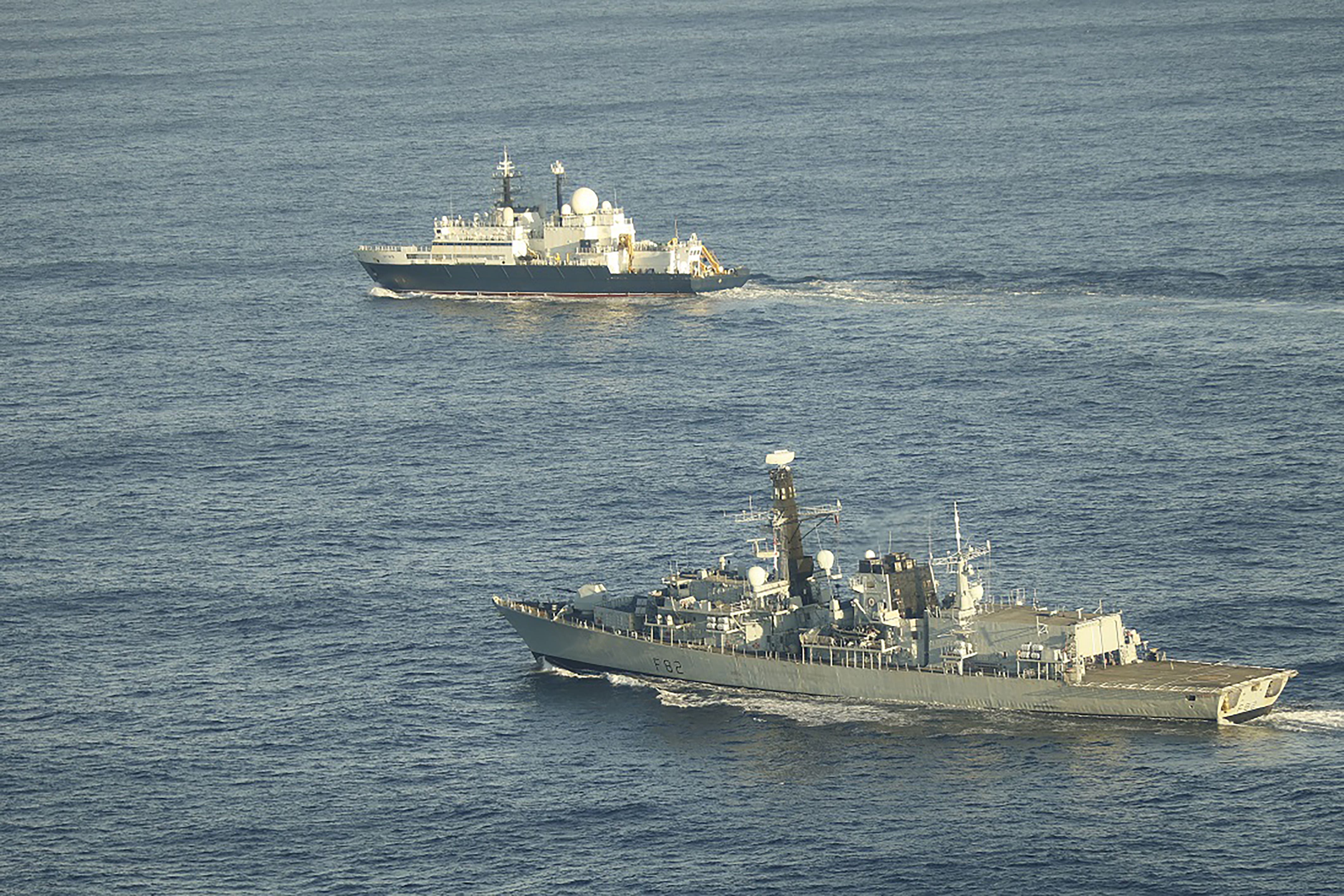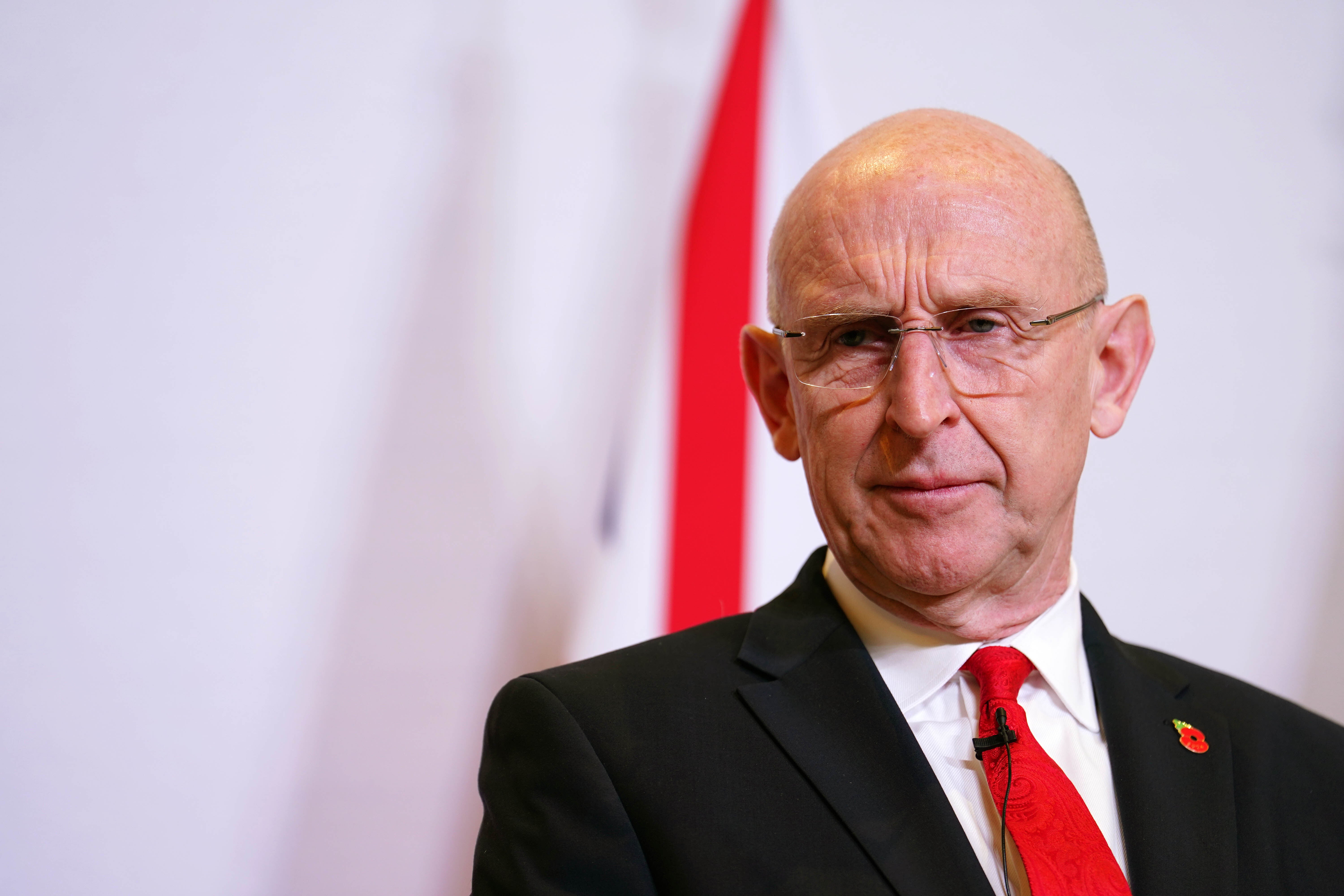A Russian spy ship is being tracked by the Royal Navy after sailing through the English Channel, John Healey revealed on Wednesday, issuing a stark warning to Vladimir Putin that the government is watching Russian activity in UK waters.
“We see you”, the defence secretary warned, promising robust action to protect Britain.
The ship, Yantar, is currently in the North Sea having passed through British waters. Mr Healey said this is the second time the Russian spy vessel had entered UK waters in recent months, noting the ship was also closely watched in November.
“Let me be clear, this is a Russian spy ship used for gathering intelligence and mapping the UK’s critical underwater infrastructure,” the defence secretary warned.

In November, the government authorised a Royal Navy submarine to surface close to Yantar to “make clear that we had been covertly monitoring its every move”, Mr Healey said.
Addressing the House of Commons on Wednesday, he said: “Yantar entered the UK exclusive economic zone about 45 miles off the British coast on Monday. For the last two days, the Royal Navy has deployed HMS Somerset and HMS Tyne to monitor the vessel every minute through our waters.
“I changed the Royal Navy’s rules of engagement so that our warships can get closer and better track the Yantar. So far, the ship has complied with international rules of navigation.”
Referring to the incident in November, Mr Healey said: “It was detected loitering over UK critical undersea infrastructure. To deter any potential threat, I took measured steps then as part of a clear direct response to the Russian vessel.
“RAF maritime patrol aircraft alongside HMS Cattistock, HMS Tyne and RFA Proteus were deployed to shadow Yantar’s every movement.
“Today, I also wanted to confirm to the House that I authorised a Royal Navy submarine, strictly as a deterrent measure, to surface close to Yantar to make clear that we had been covertly monitoring its every move. The ship then left UK waters without further loitering and sailed down to the Mediterranean.”
He added: “I also wanted President Putin to hear this message: we see you, we know what you’re doing and we will not shy away from robust action to protect this country.”
Mr Healey told the Commons that Russia is the biggest external threat to Britain, warning that aggression from Putin “will not be tolerated at home or in Ukraine”.
The defence secretary said Russia was “dangerous but fundamentally weak”, as he referenced the casualties the country had suffered during the war in Ukraine and its decision to draft in troops from North Korea.

“Russia remains the most pressing and immediate threat to Britain, and I want to assure the House and the British people that any threat will be met with strength and resolve.”
Mr Healey said P8 Poseidon and Rivet Joint aircraft would join the Nato operation to protect undersea cabling in the Baltic Sea. RFA Proteus has also been deployed to monitor “offshore infrastructure”.
He added: “Russian aggression will not be tolerated at home or in Ukraine. It’s why one of the first acts of this government was for the prime minister to launch the strategic defence review. It’s why the government has increased defence spending next year by almost £3bn and why we will set a path to increase defence spending to 2.5 per cent of GDP in the spring.
“This new era of the threat demands a new era for defence. Change is essential, not optional, and the government is determined to meet the challenge, determined to deliver for defence.
“We will protect the homeland and our critical national infrastructure, and we will make Britain secure at home and strong abroad.”
His remarks come a week after Sir Keir Starmer declared Mr Putin’s invasion of Ukraine a “monumental strategic failure”, as he travelled to Kyiv to sign a new long-term partnership deal with Volodymyr Zelensky.
The prime minister visited Ukraine for the first time since entering No 10 just days before Donald Trump returned to the White House, potentially signalling a shift in US support for Ukraine’s war effort in favour of a push for a peace deal.
The UK and Ukraine signed a 100-year partnership, which includes defence and scientific collaboration but will also forge new community links between the UK and Ukraine. Sir Keir said the agreement, which will bolster military collaboration on maritime security and bring together experts in areas including drone technology, showed Mr Putin’s attempts to pull Ukraine away from the West had backfired.
Responding to the defence secretary’s statement, his opposite number James Cartlidge said the Conservative Party stood “shoulder to shoulder” with Labour over its approach, welcoming the government’s openness over how it was tackling the Russian naval threat.
“We welcome that transparency because it is critical for our war readiness … that as far as we are able, and without compromising our national security and operational security, we tell the British public the truth about the serious nature of the Russian threat and what that will inevitably mean for public expenditure on defence,” he said.







